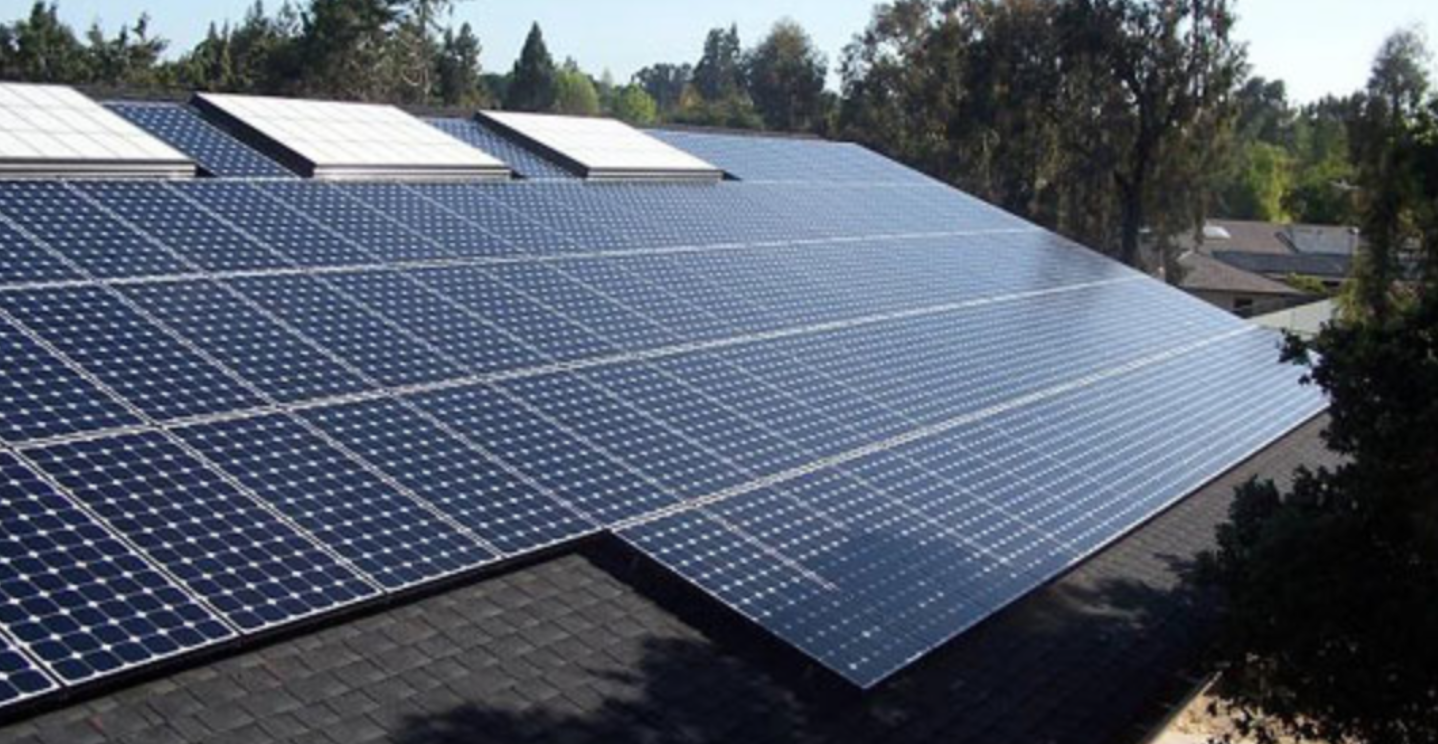Photo: Solar panels.
Just two weeks after the Belmont Light Board – made up of the Belmont Board of Selectmen – decided to delayed the start of a payment plan for residents who use solar power, Town Meeting will debate placing a non-binding resolution on the town ballot to ask if the town should support as policy a higher subsidy to homeowners who choose the solar route.
While Sami Baghdady, the chair of the Light Board and the Selectmen, said the delay was so legal language could be clarified in the documents homeowners are required to sign, he did not dismiss the possibility the Light Board – which oversees Belmont Light, the municipal electric utility – could lead to a change in the Residential Rate APV, the new set of rates for customers who use solar panels to generate electricity which was approved in December.
“At this point, it’s a delay. May it result in a re-evalutation of the policy? I think it might,” said Baghdady after a Selectmen’s meeting on Monday, April 27.
The Light Board OK’d the postponement after several of the 18 residents who are entitled to participate in Belmont Light’s new program voiced concerns on understanding the legal language in the agreement including a very strong indemnity provision that needed to be signed and returned by April 24.
“So when [the board] met (on April 22), we raised several questions regarding the packet that went out to residents that were still unresolved. So we agreed to delay the implementation. Concurrent with that, so that necessitated a delay in the filing [by Belmont Light] to the Massachusetts Department of Utilities,” said Baghdady.
With the new residential rate delayed, Town Meeting will likely take up on the first night of the annual meeting, Monday, May 4, a citizen’s petition from a group of solar power advocates seeking members approval to place a non-binding referendum to gauge the community’s support for either the newly-created buy back pricing program or one which provides a greater payback to households using solar energy.
Under the newly-delayed plan – which took nearly two years and sometimes contentious debates between advocates and the Municipal Light Advisory Board which drew up the blueprint – residents who install solar power would pay the standard monthly fee every household pays to be hooked up to the Belmont Light system, and a new monthly charge of about $14 for installed capacity.
The new plan also reduces the money homeowners receives as a credit for energy Belmont Light “buys back” when the solar system is generating excess energy as the utility pays for electricity over the course of the entire month, without crediting the homeowner if the electricity is generated during peak-times and how much greenhouse gas emissions they are savings.
Solar advocates contend they should receive additional credits, (or as the utility calls subsidies) for a myriad of energy and pollution savings.
While the debate in Belmont continues, a state task force on net metering and solar power issued its own report on April 30 concluding that it did did “not support raising the net metering caps in the short term absent a long term sustainable solution.”
“Rather, we believe it is extremely important that any adjustments to the caps be accompanied by meaningful changes to the mix of incentives and proper consideration of the role of the ratepayers,” it read.








Leave a Review or Comment